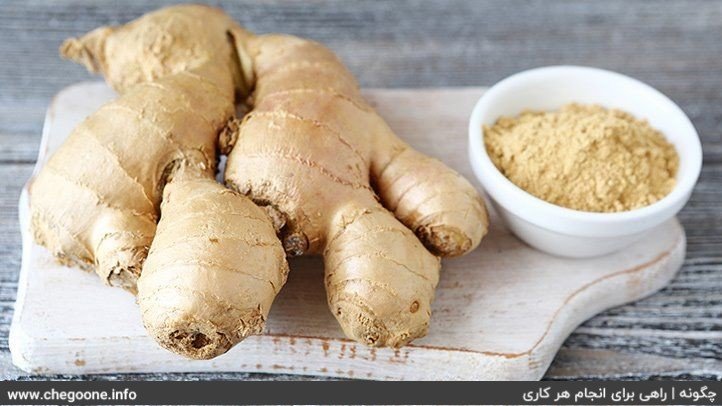How to cure stomach ache + stomach ache treatment at home
Stomach pain is so common that everyone experiences it at one point or another. There are many reasons why you may have a stomach ache. Most of the causes are not that serious and their symptoms disappear quickly. In general, most stomach problems can be cured with things you already have at home. Stomach pain is a non-medical term that describes a collection of digestive symptoms such as gas, bloating, indigestion, heartburn, nausea, vomiting, constipation, or diarrhea.
What is a stomach ache?
As we said, many cases are simply called stomach ache. The abdomen contains many organs, including the stomach, liver, pancreas, small and large intestines, and reproductive organs. There are also major blood vessels in the abdomen. Serious causes of stomach and abdominal pain usually include appendicitis and pregnancy problems. However, most stomach pains are harmless and go away without surgery. Most people just need relief from their symptoms. Sometimes, abdominal pain can stop and the cause will never be known, or the cause may become more apparent over time.
Common causes of stomach pain in adults
There are many reasons why you may have pain in your stomach area. People often worry about appendicitis, gallstones, ulcers, infections, and pregnancy problems. Doctors are concerned about these as well as many other conditions.
Abdominal pain may not originate in the abdomen. Some surprising causes include heart attacks, pneumonia, conditions in the pelvis or groin, certain skin rashes such as shingles, and stomach muscle problems such as pressure. Pain may occur with problems with urination or bowel movements or with period problems. But most of the cases, as mentioned, the cause of stomach pain is not serious and can be easily solved.
Stomach pain treatment at home
1- Peppermint oil
For centuries, peppermint oil has been used to treat digestive diseases. Peppermint oil has antimicrobial, anti-inflammatory, antioxidant, immune-modulating, and anesthetic activities, all of which may help with intestinal disorders. Peppermint oil can soothe painful muscle contractions in your stomach.
Peppermint is often cited as a helpful remedy for nausea and upset stomachs because the menthol in its leaves is a natural pain reliever.
Use mint in this way:
- Brew a cup of peppermint or peppermint tea
- Smelling mint extract
- Sucking mints
- Chewing the leaves themselves
This should usually relieve stomach pain and reduce nausea.
2- Eucalyptus oil
Eucalyptus oil contains substances that can have a soothing effect when applied to the abdomen. Eucalyptus oil fights bacteria, improves your immune system and reduces inflammation. Menthol, camphor oil and nutmeg oil are also used along with eucalyptus oil to relieve pain.
3- Apple cider vinegar
When you feel a stomach ache, try taking this acidic food by the tablespoon to neutralize the upset stomach. Do you feel it is too strong? Mix a tablespoon of apple cider vinegar with a cup of water and a teaspoon of honey and drink it slowly.
Most of the acids in apple cider vinegar help to slow the digestion of starch and allow starch to reach the intestines and keep the gut bacteria healthy. Some people take a spoonful of apple cider vinegar every day as a preventative measure.
4- Ginger
Herbal medicines are also effective in relieving nausea. People have been using ginger root for the past 2,000 years to soothe upset stomachs. Various preclinical and clinical studies also support the beneficial properties of ginger. For a soothing drink, try ginger tea with lemon.
Ginger is a natural anti-inflammatory. This plant is available in different forms, all of which can be helpful. Ginger gum and supplements are easy to take, while other people prefer their ginger in drink form. When you have an upset stomach, try whole-natural ginger or grind some fresh ginger root and make a tea.
5- Sports drinks and soft drinks without caffeine
Vomiting and diarrhea along with stomach upset can cause dehydration. Sports drinks containing electrolytes are the best way to prevent dehydration. If you have trouble keeping fluids down, try sucking on ice cubes and drinking small sips of water. You can also drink caffeine-free soft drinks such as Sprite and Sun Up with ginger.How to treat diarrhea at home).
Be careful to avoid caffeinated drinks, as caffeine can make your stomach upset worse. Carbonation from soft drinks makes the stomach bloat and at the same time increases its internal pressure. The combination of higher blood pressure and the effects of caffeine increases the likelihood of acid reflux.
6- BRAT diet
All parents of toddlers know about the banana, rice, apple and toast (BRAT) diet for soothing upset stomachs. This method can also help with nausea or diarrhea. BRAT contains low-fiber, high-binding foods. None of these foods contain salt or spices, so they are unlikely to aggravate symptoms. This bland diet is perfect for when you feel sick but need something to eat. Try to over-toast the toast. Charred bread is thought to reduce nausea.
7- Thermal pad
When you’re feeling sick, a heating pad or hot water bottle might ease your pain, so hug your electric blanket and rest until your symptoms subside. The heat will relieve your stomach of any cramps or pain and can also help relax muscles and reduce nausea. However, don’t leave it on for too long, as you may damage your skin from overuse.
8- Some foods make stomach upset worse
Some people with chronic stomach upset are more sensitive to certain foods:
- Caffeinated beverages: Carbonated beverages can worsen acid reflux symptoms due to their caffeine and carbonated content.
- Dairy products: Patients with lactose intolerance should avoid dairy products.
- Spicy foods: Eating too many spicy foods can upset your stomach and lead to constipation or diarrhea.
- Fried foods: Fried foods are high in saturated fats that take a long time to break down in the stomach and slow down digestion.
- Alcohol: Drinking large amounts of alcohol irritates your gut, which can cause stomach pain, nausea, and vomiting.
- Pain relievers: Ibuprofen, aspirin, and antibiotics can increase nausea.
- People with irritable bowel syndrome may want to avoid certain foods that cause bloating, especially beans, legumes, onions, celery, asparagus, cauliflower, raisins, apricots, prunes, Brussels sprouts, wheat, pretzels. And pastries.
7 tips to prevent indigestion for sensitive stomachs
- Eat slowly and make sure you chew your food properly.
- Eat smaller, more frequent meals.
- Drink plenty of fluids throughout the day.
- Avoid late night meals or snacks.
- Make sure your diet consists of soluble fiber.
- Identify specific triggers and eliminate them from your diet.
- Eat a bland diet without excessive use of spices.
last word

Stomach pain comes in many forms and may range from intermittent pain to vague abdominal pain and stabbing pains that remain constant. Warning signs that indicate a more serious condition include:
- Chronic or severe abdominal pain that makes normal activities difficult
- Evidence of gastrointestinal bleeding (vomiting blood, blood in stool)
- Iron deficiency
- Loss of appetite
- Unexplained weight loss
- Difficult or painful swallowing
- persistent vomiting
- Severe and persistent diarrhea lasting more than two days.
- Nocturnal diarrhea that prevents you from sleeping.
People who experience frequent stomach problems may have more than an allergy. It’s best to see your doctor for a screening, so your doctor can rule out conditions like peptic ulcer disease, gastritis, celiac disease, inflammatory bowel disease, or irritable bowel syndrome.



